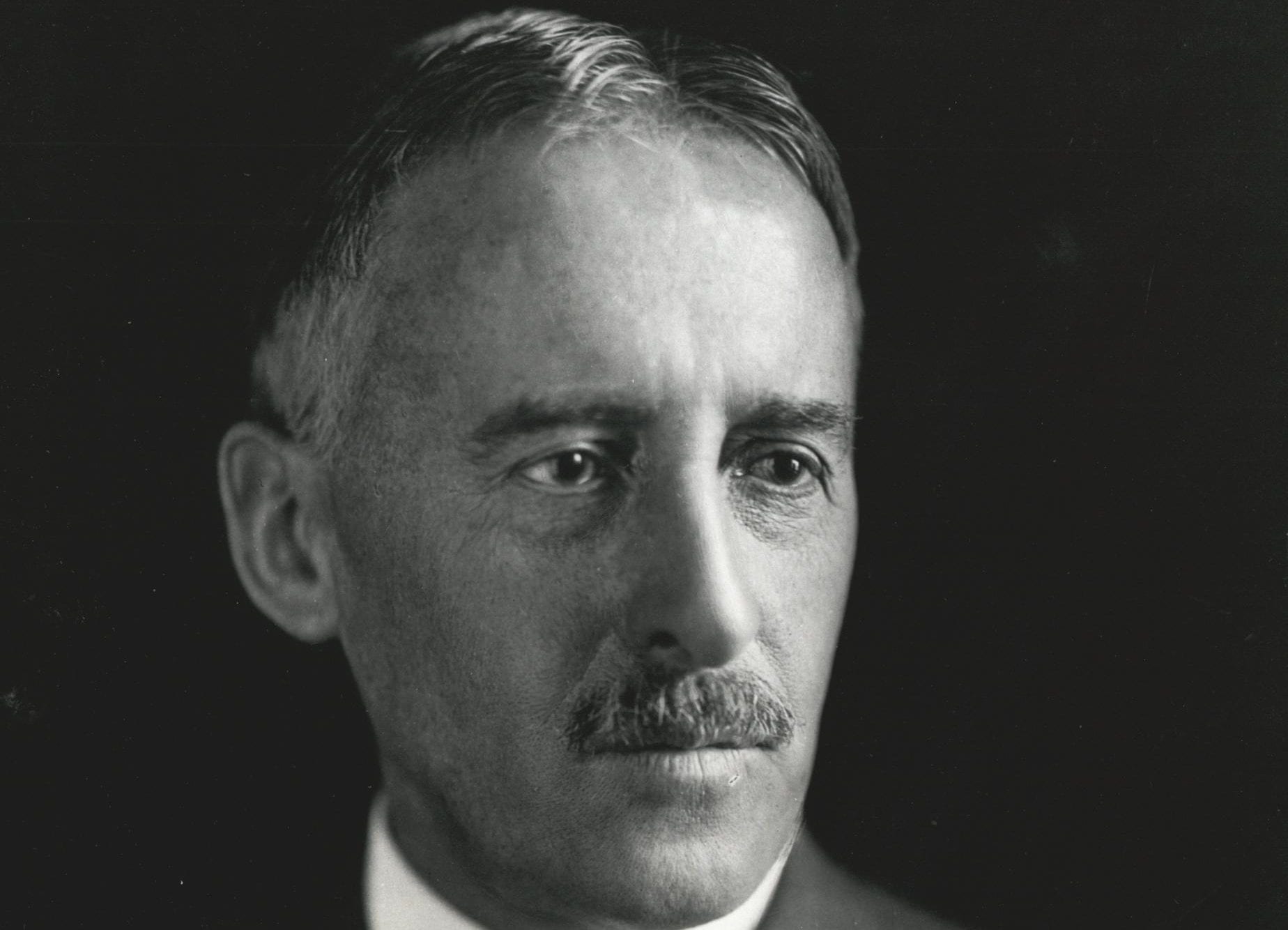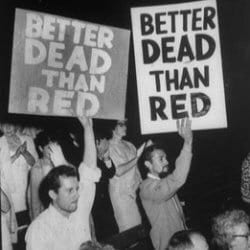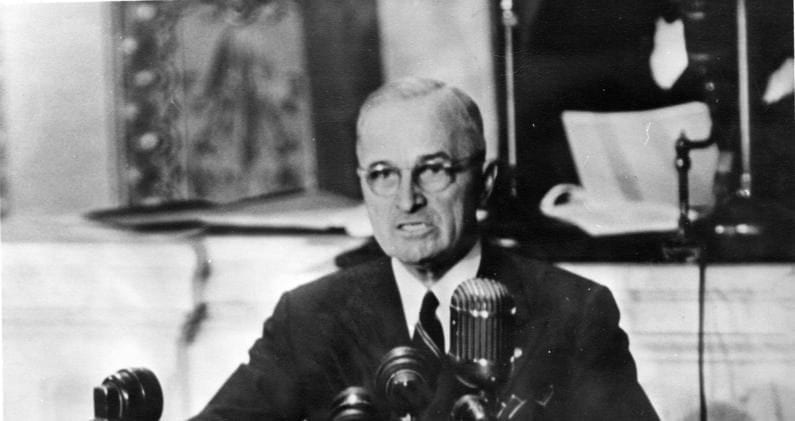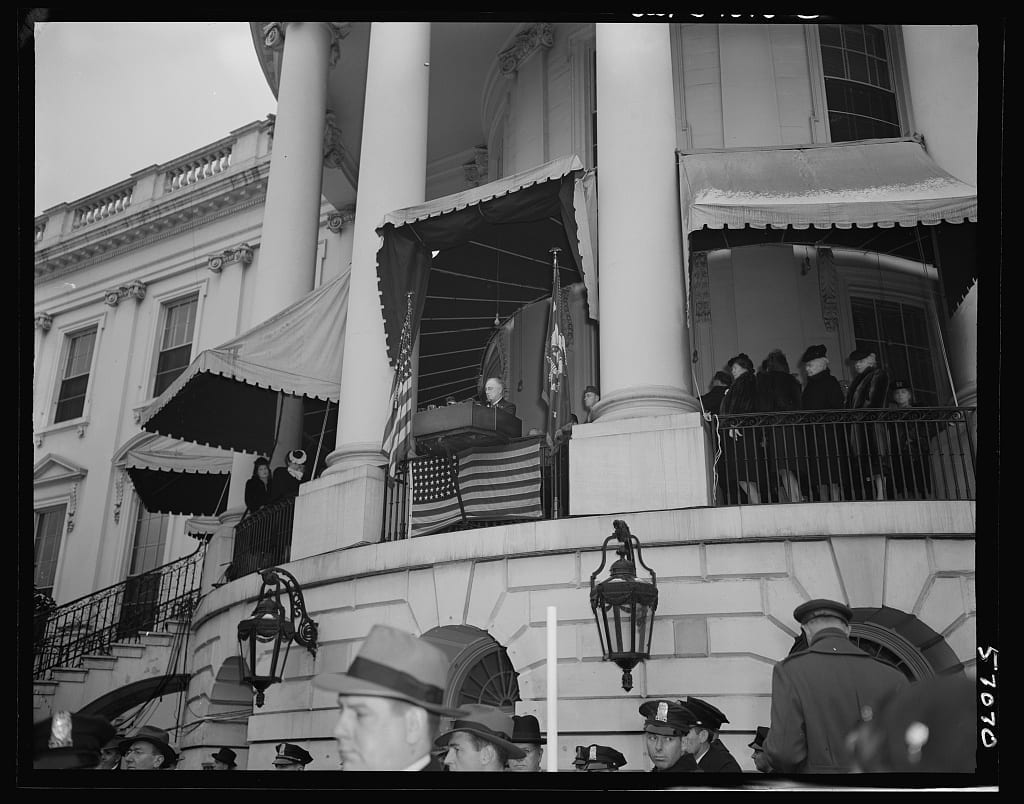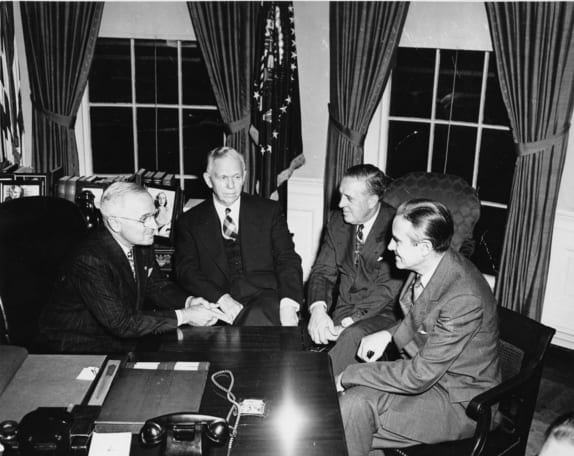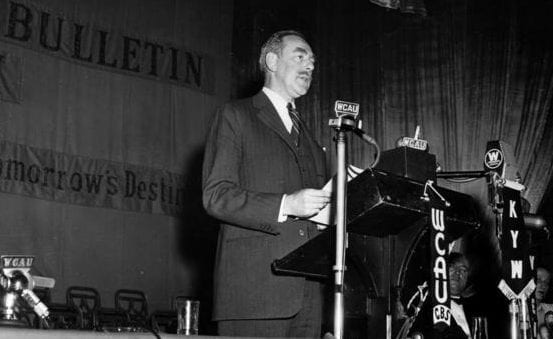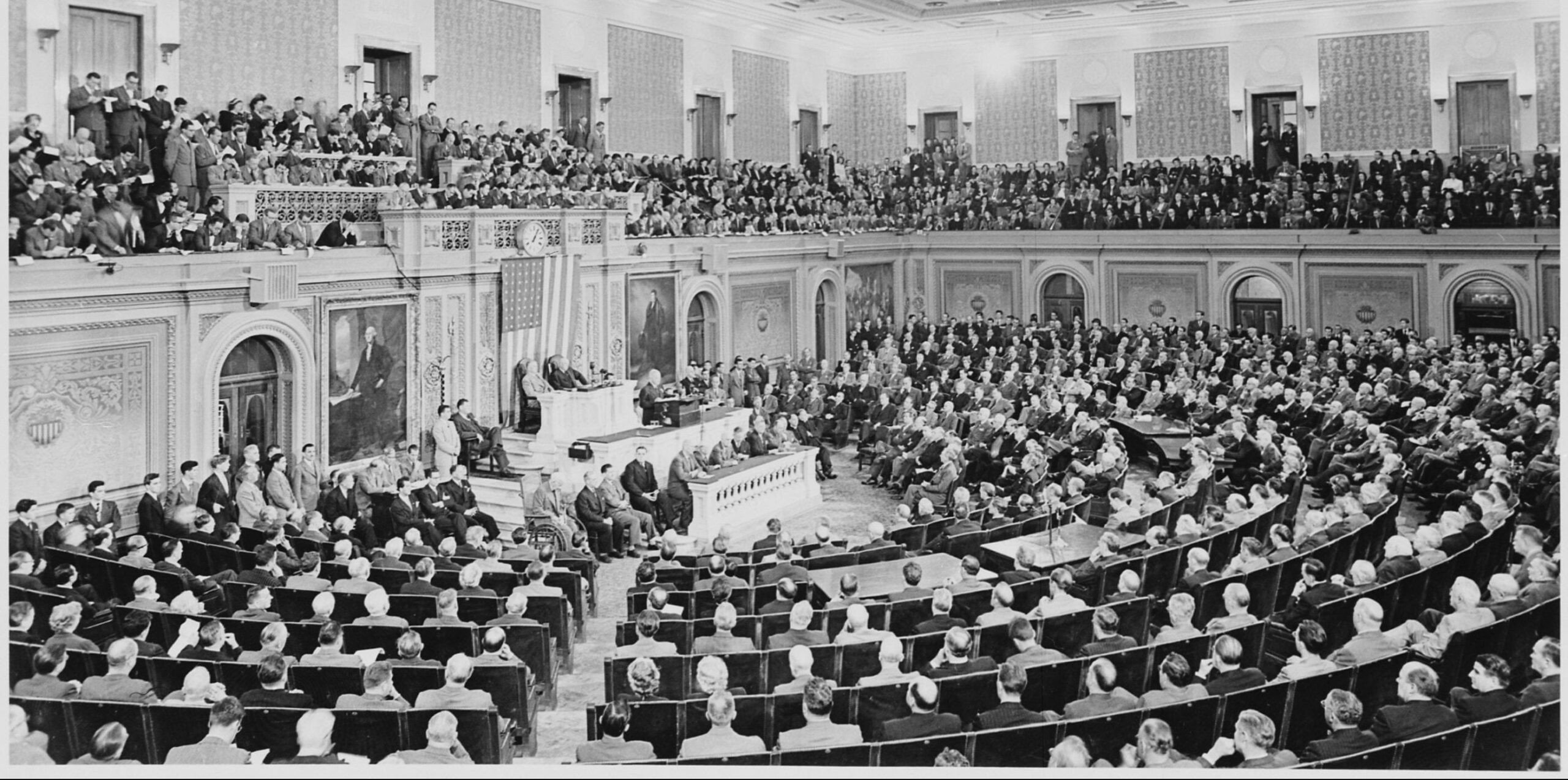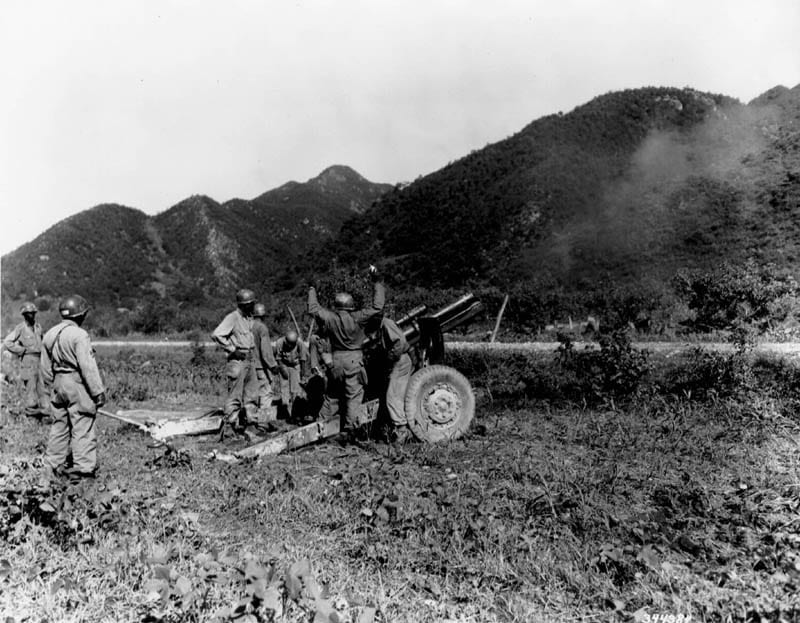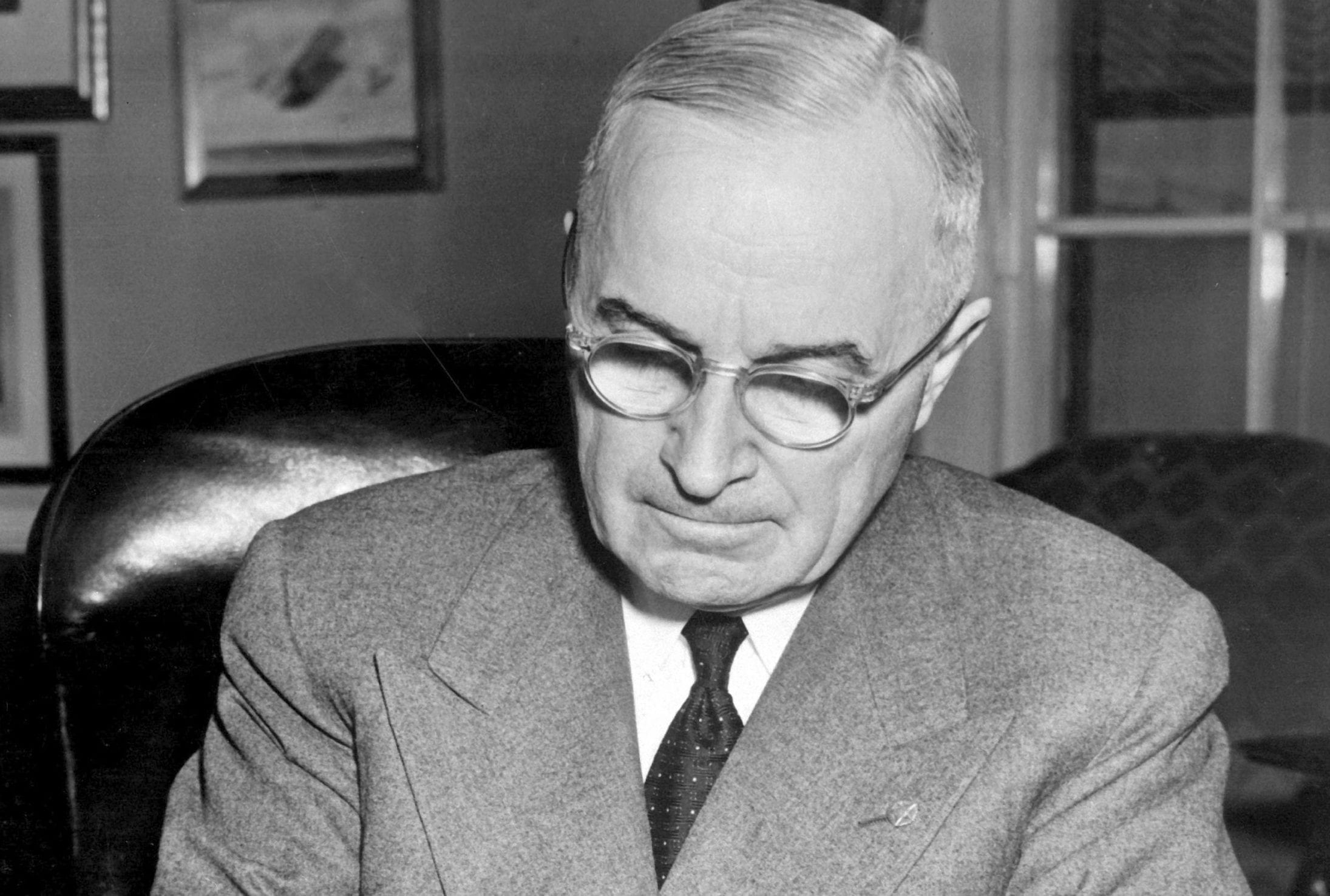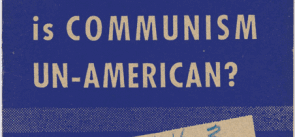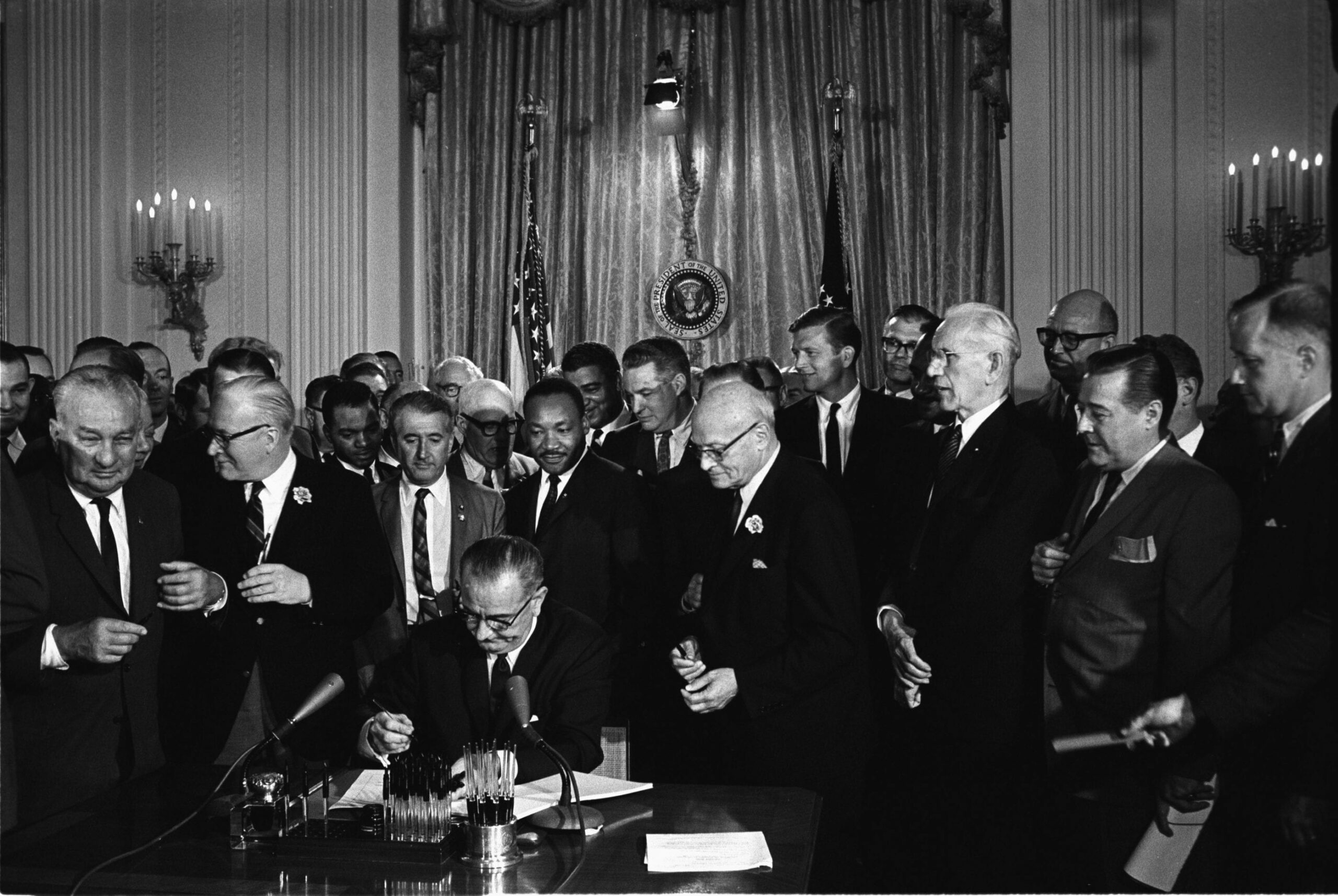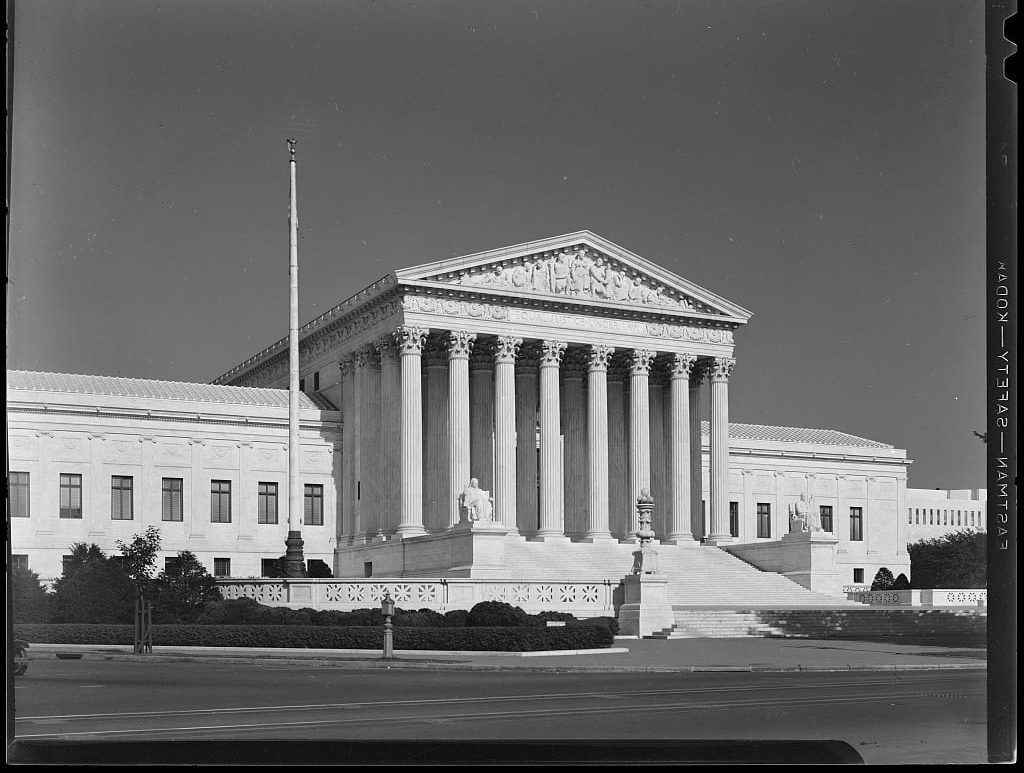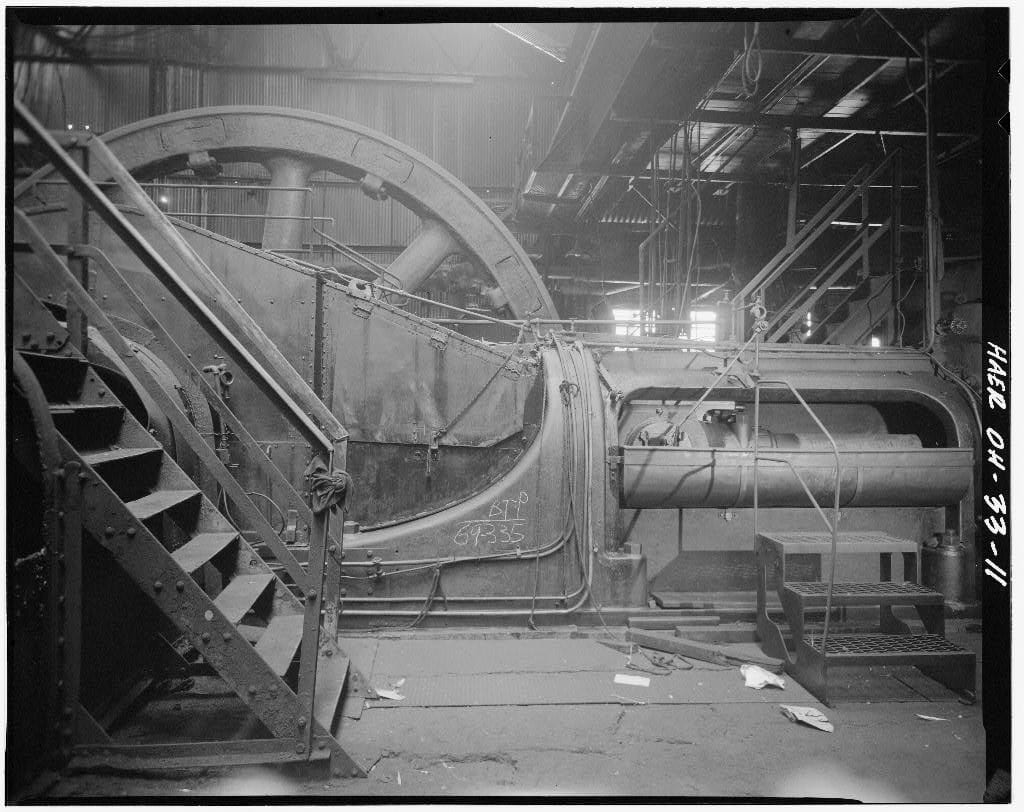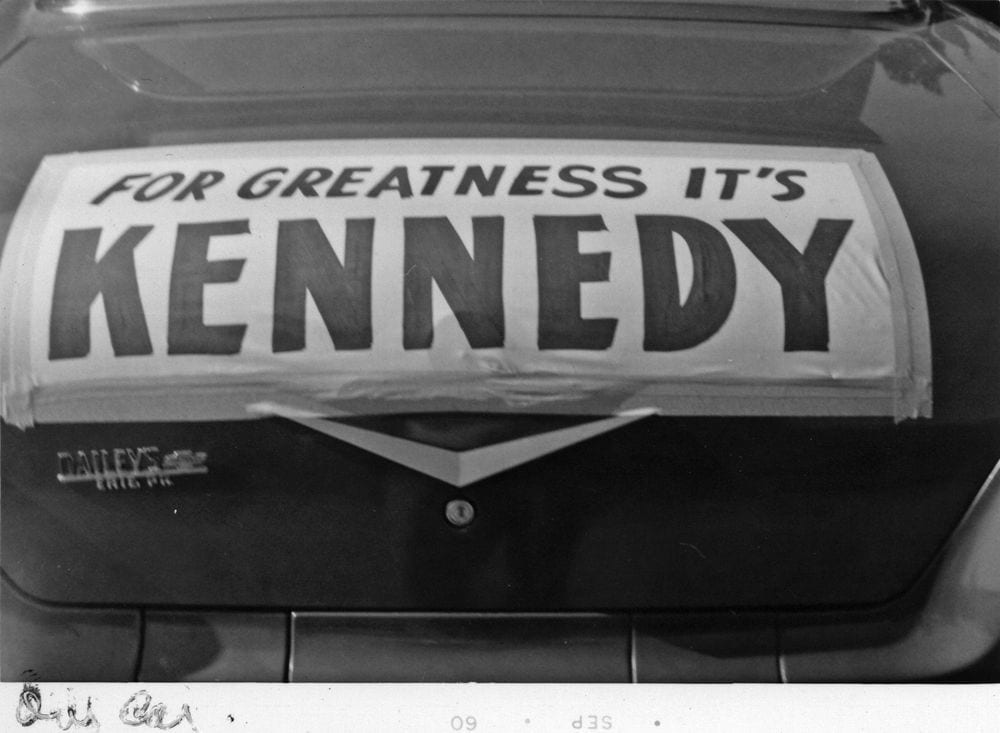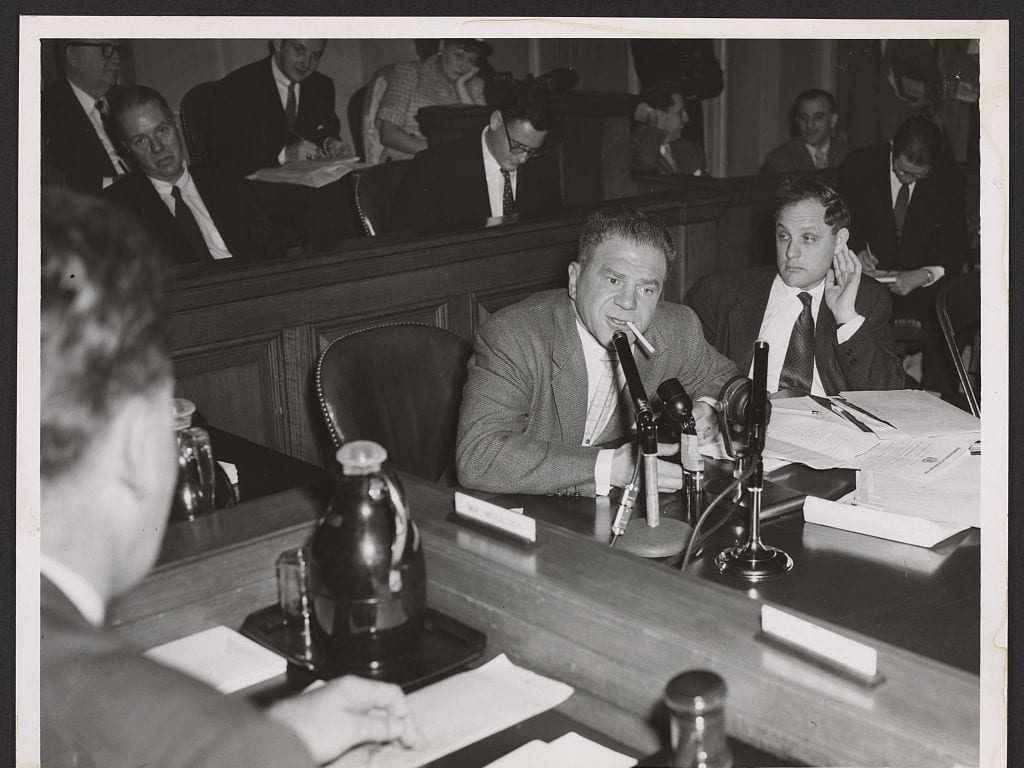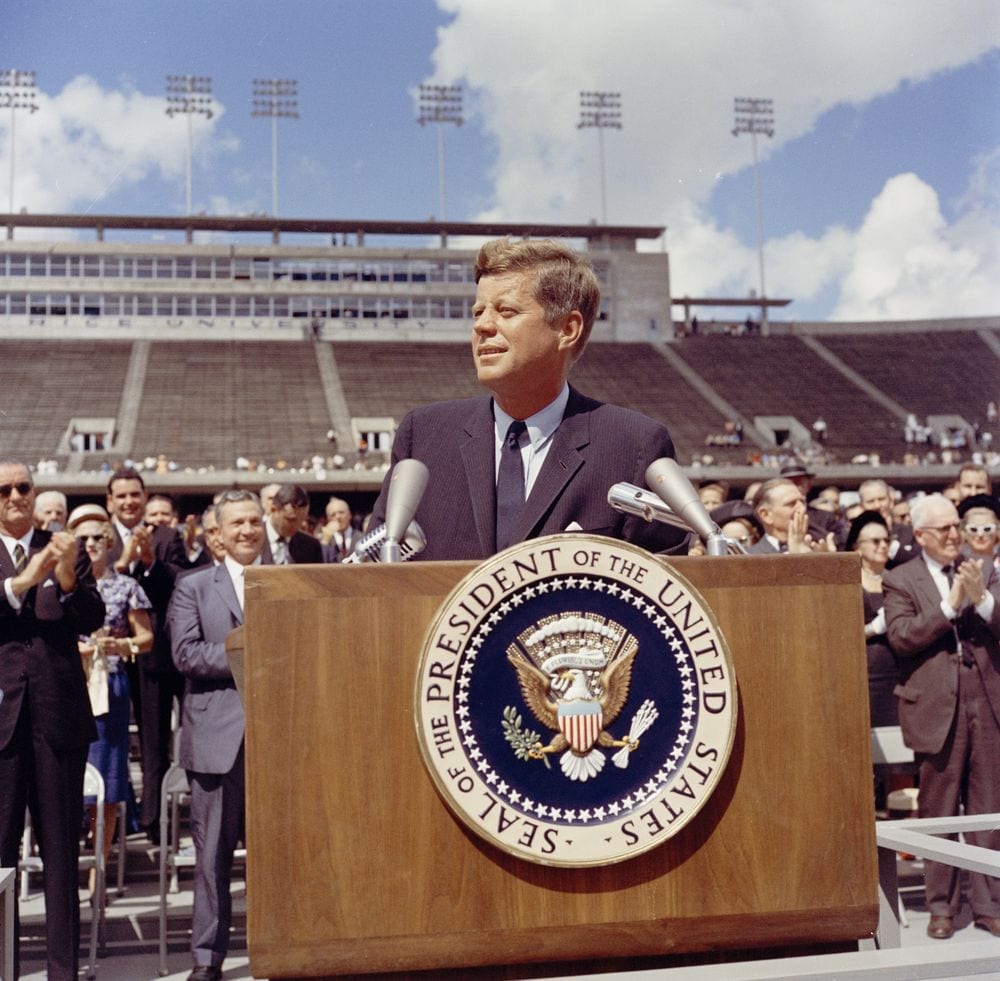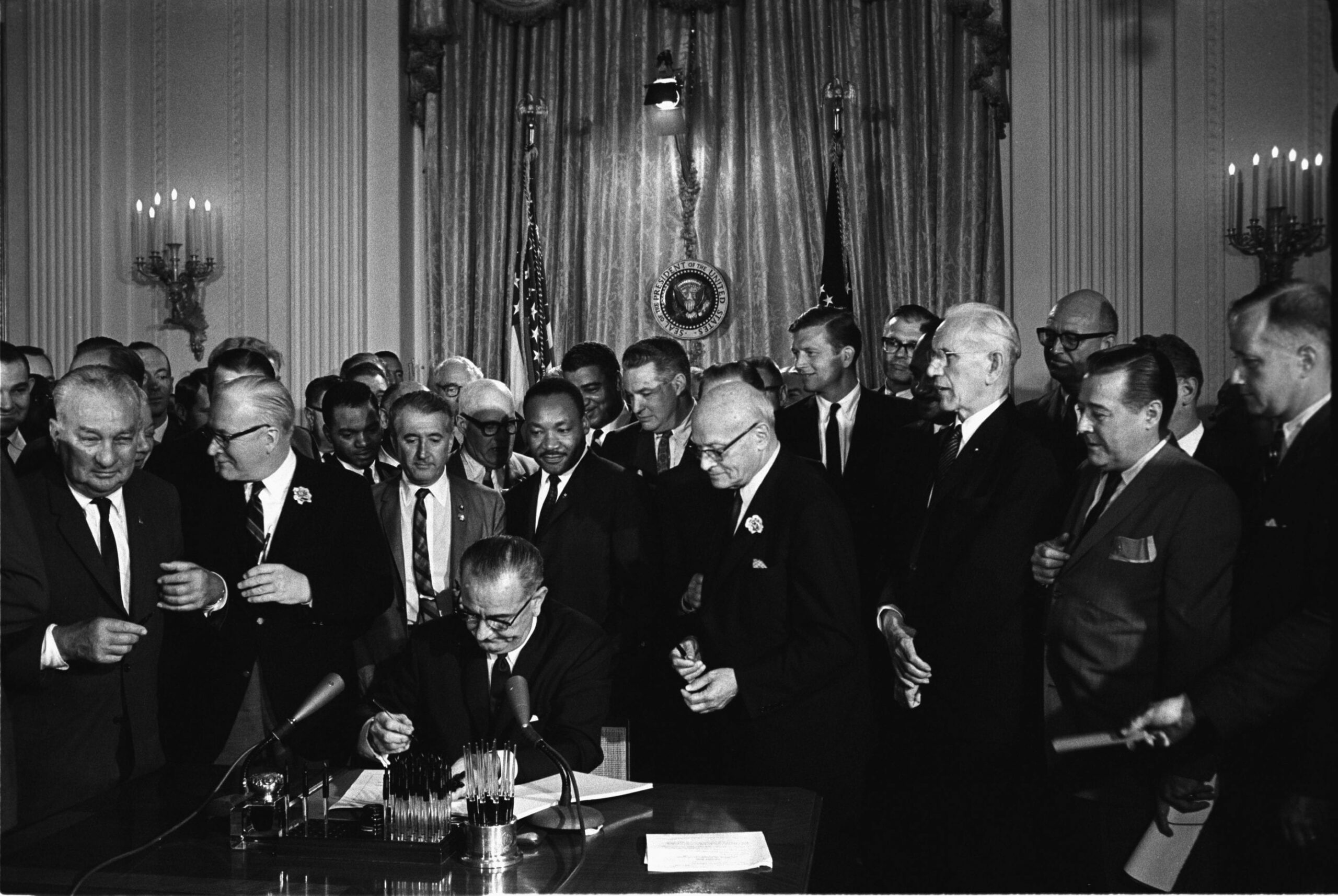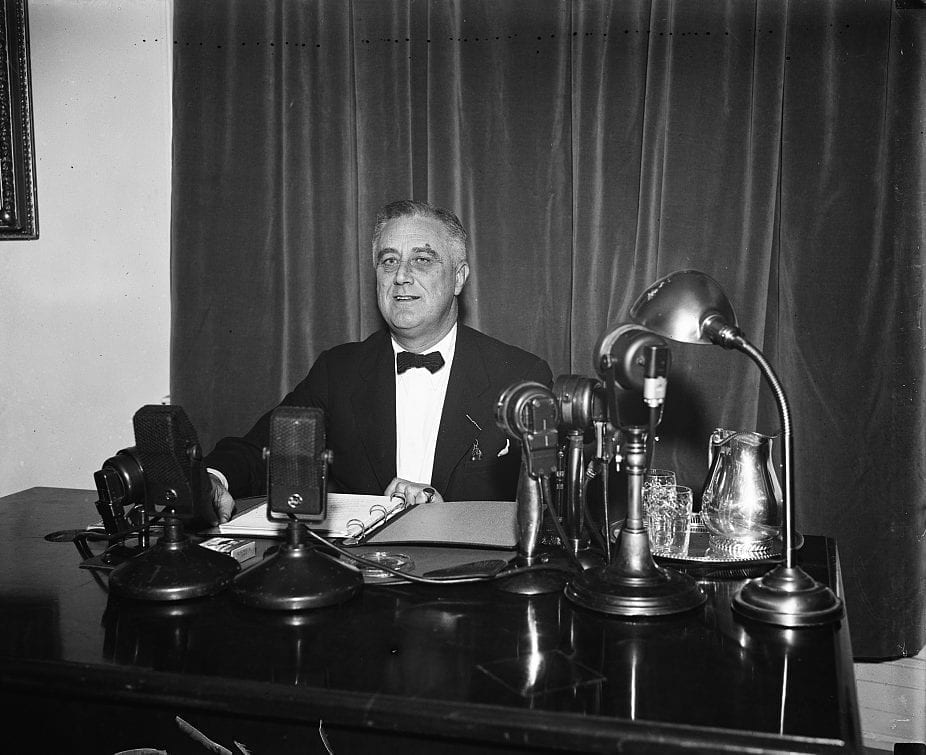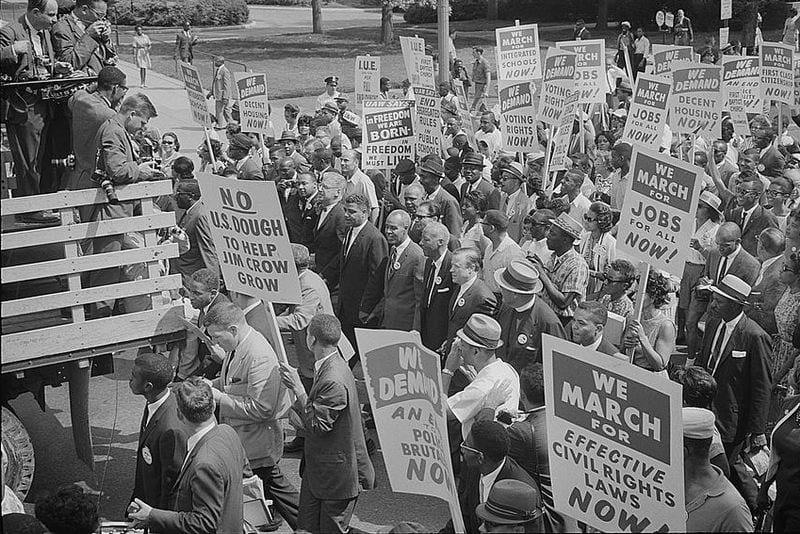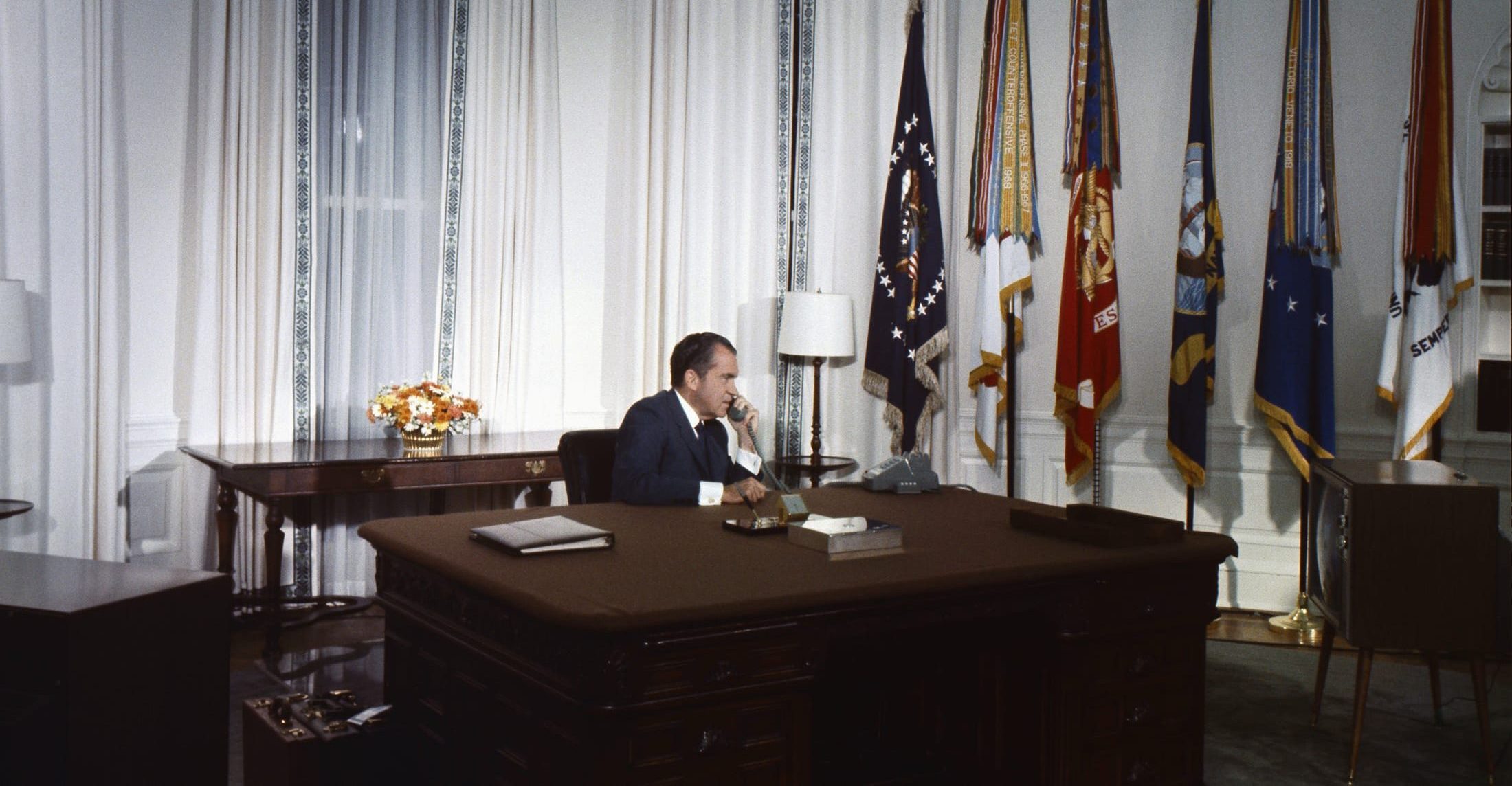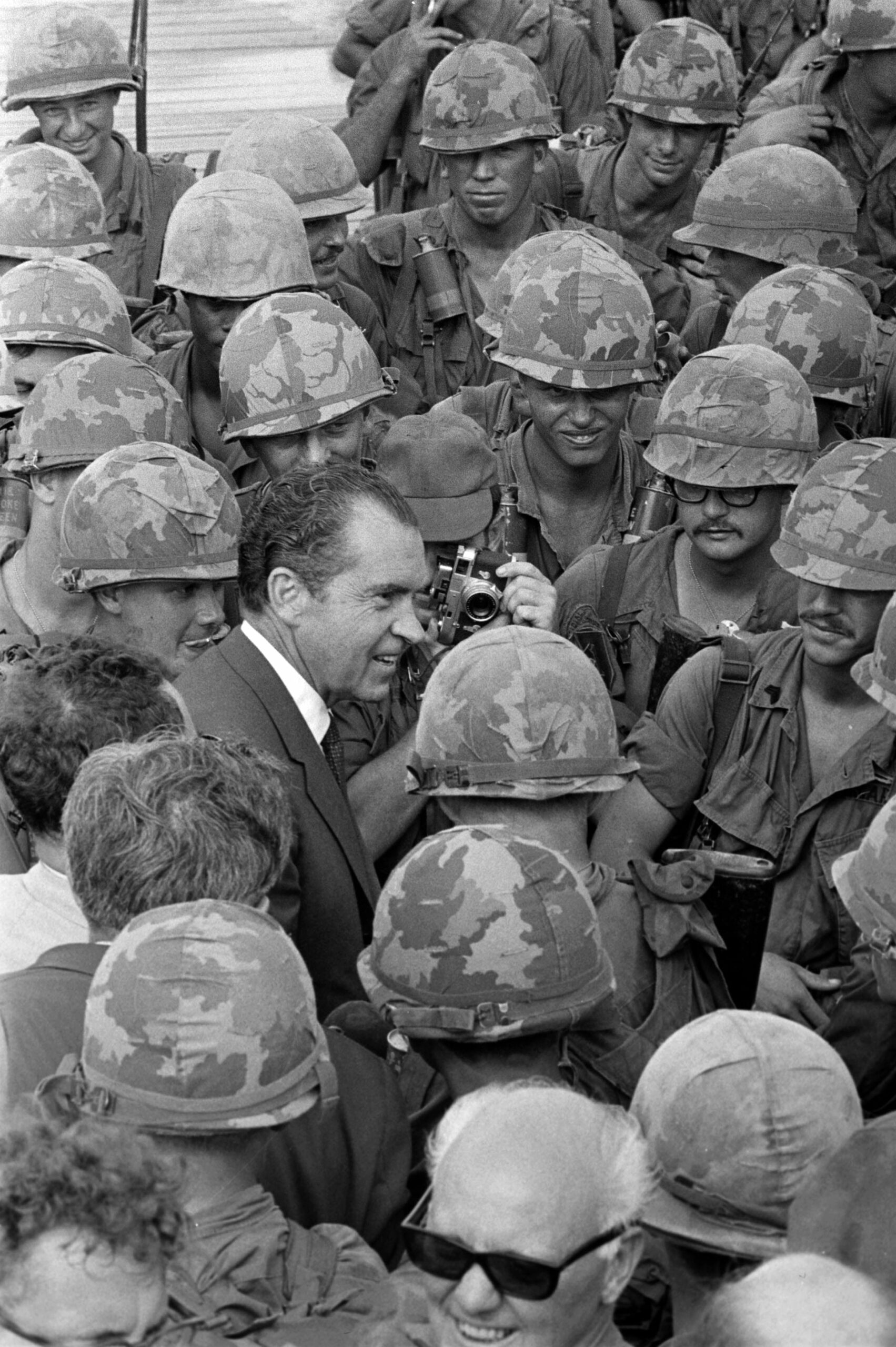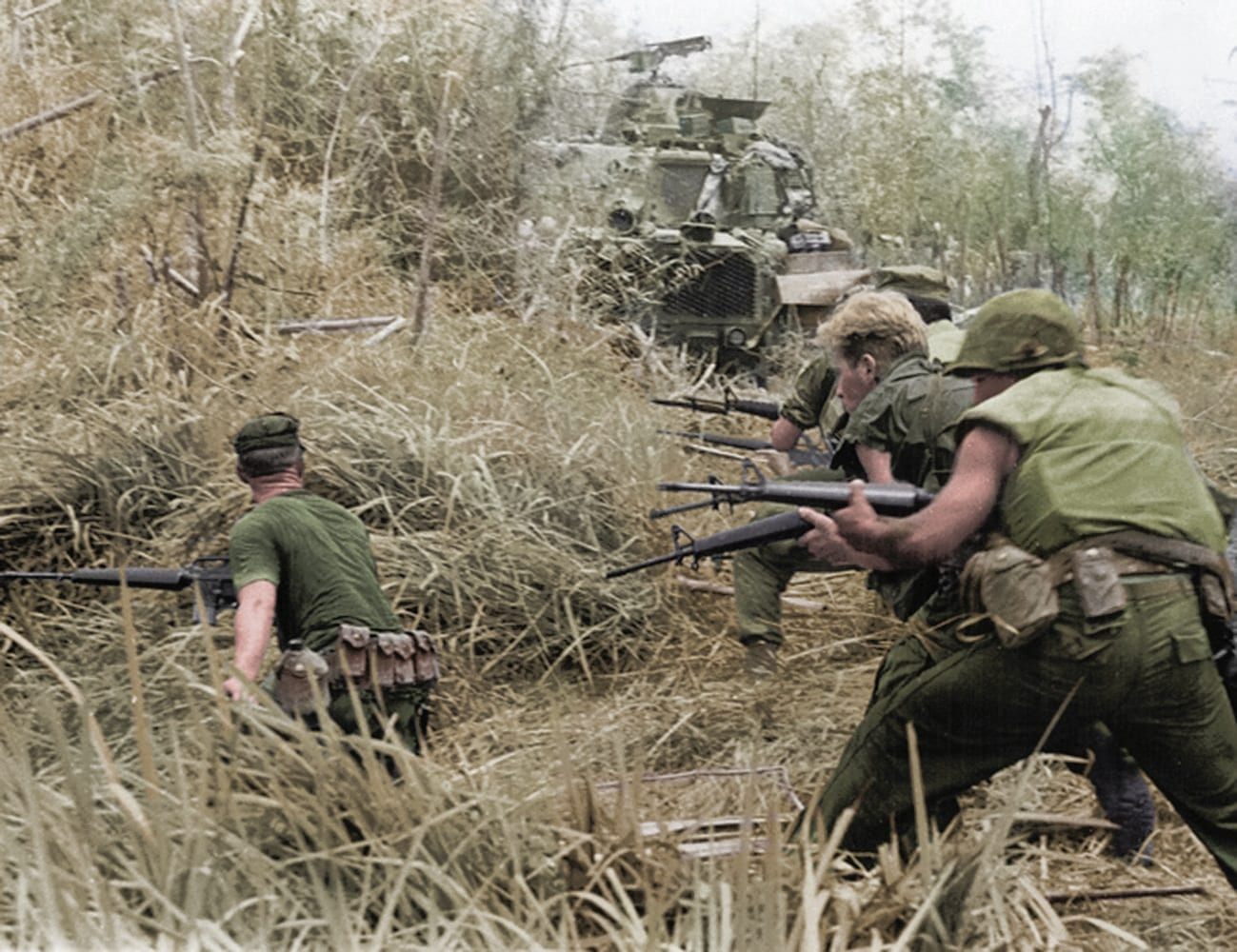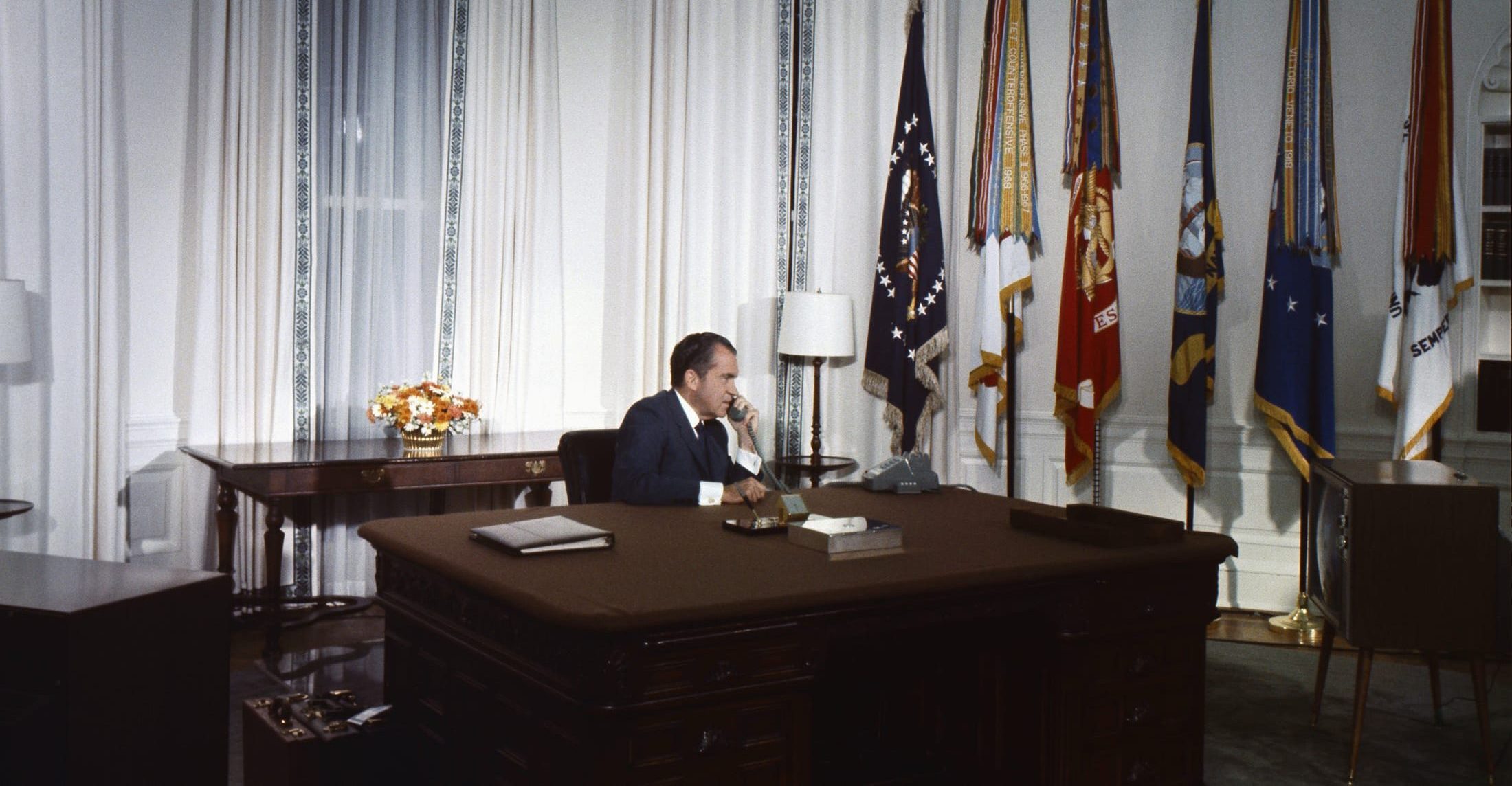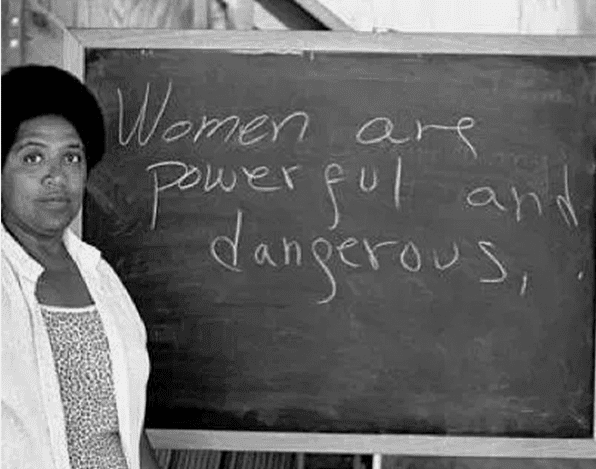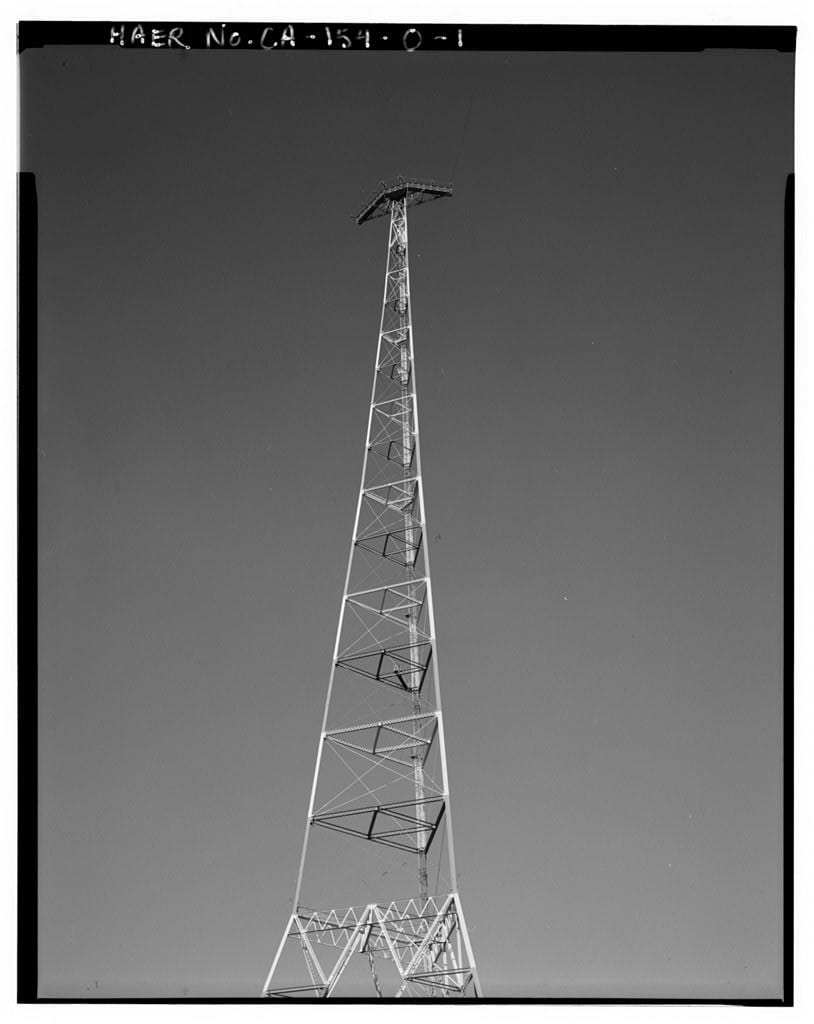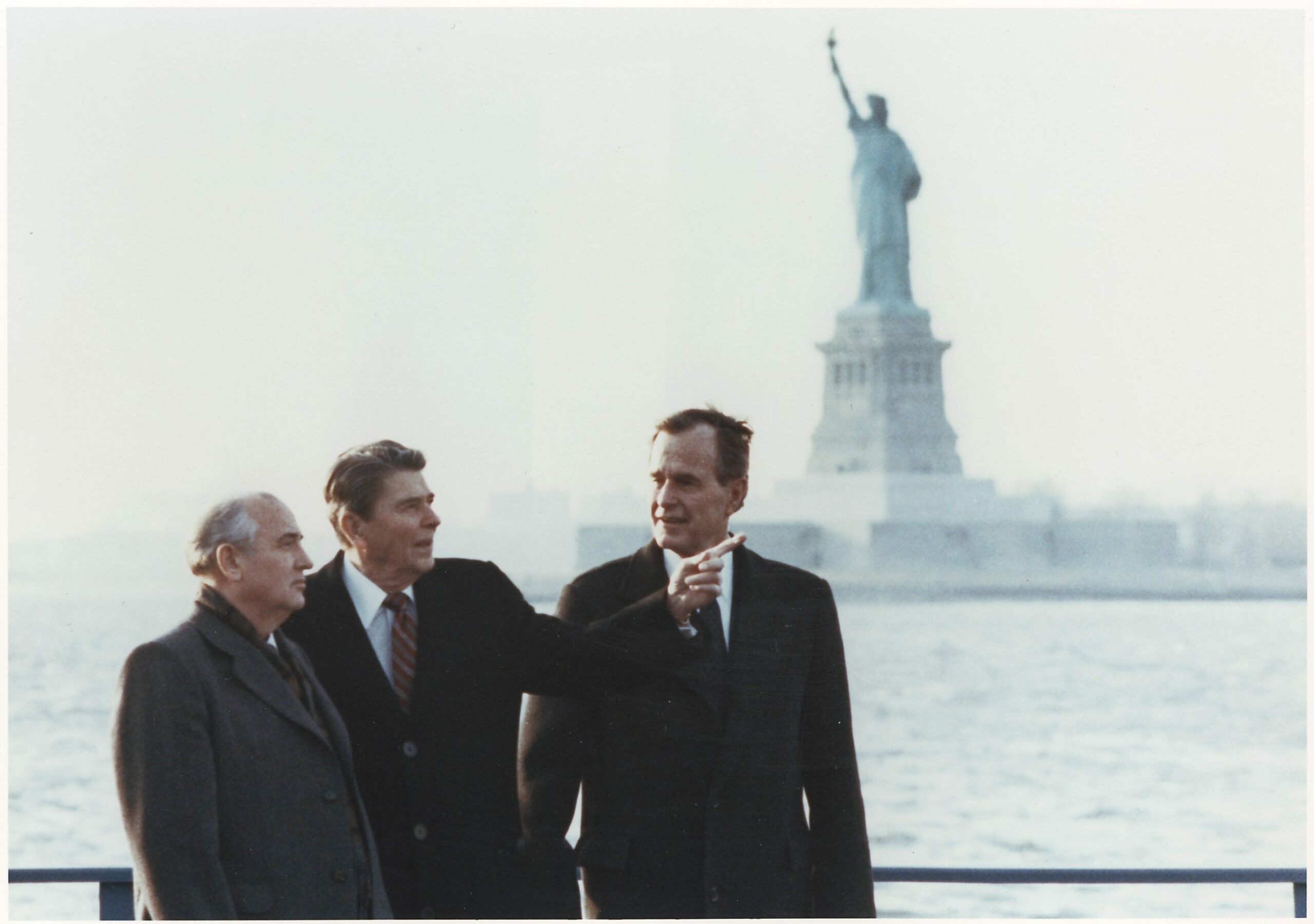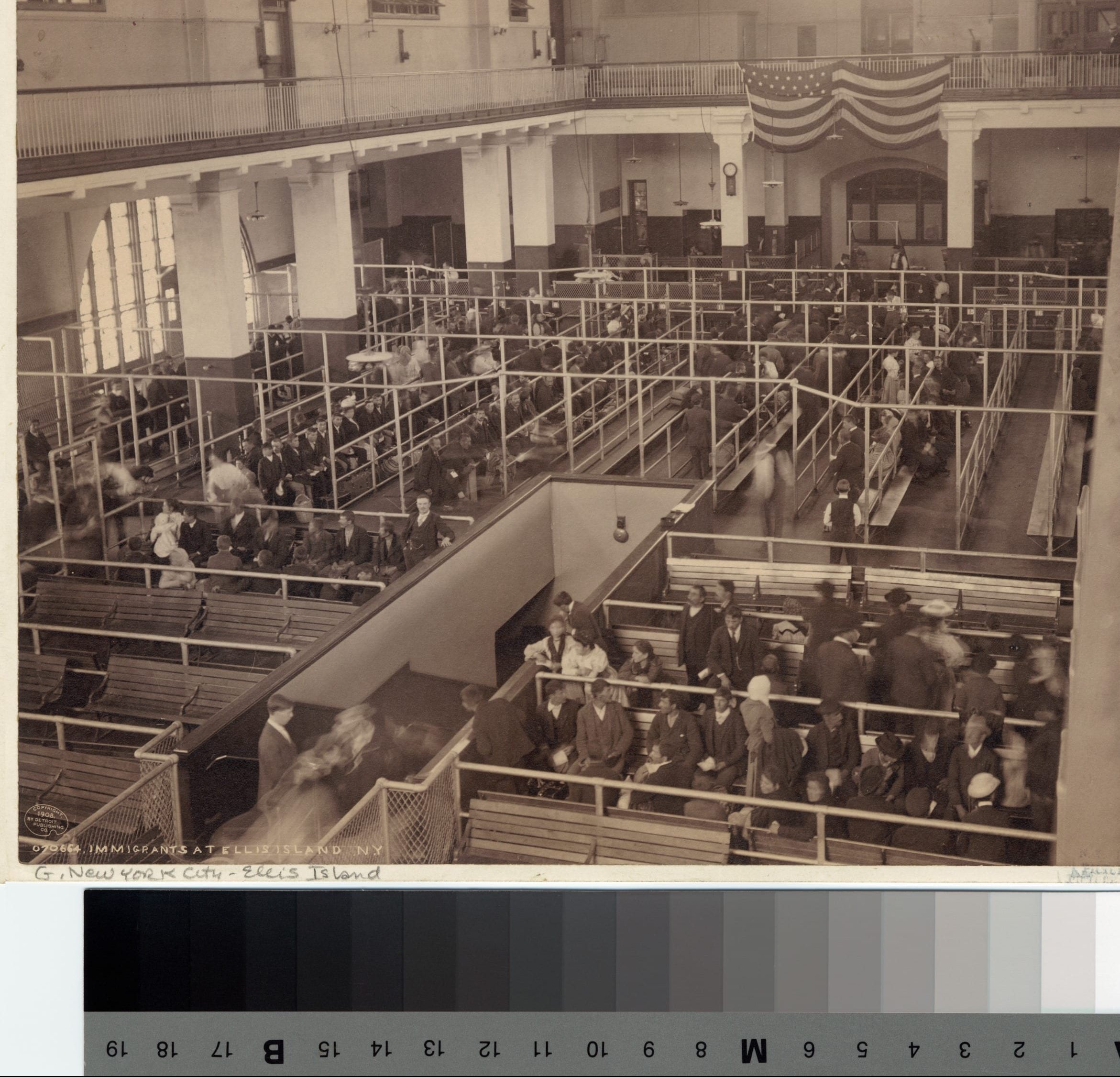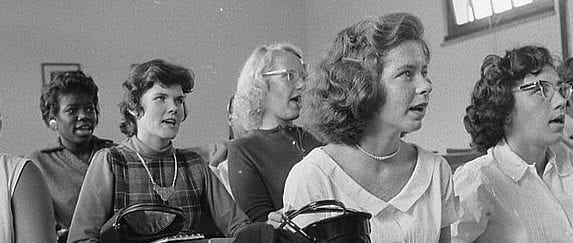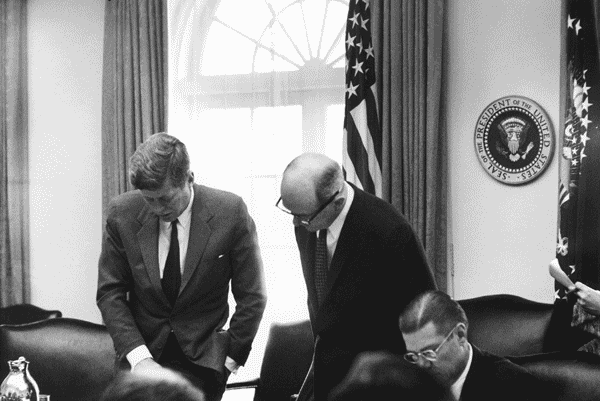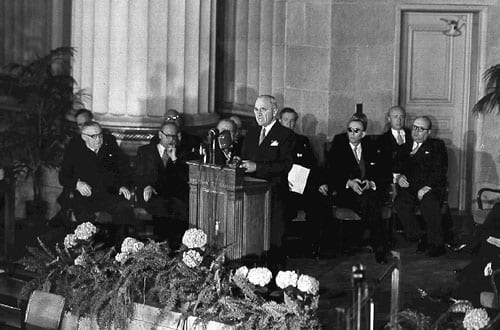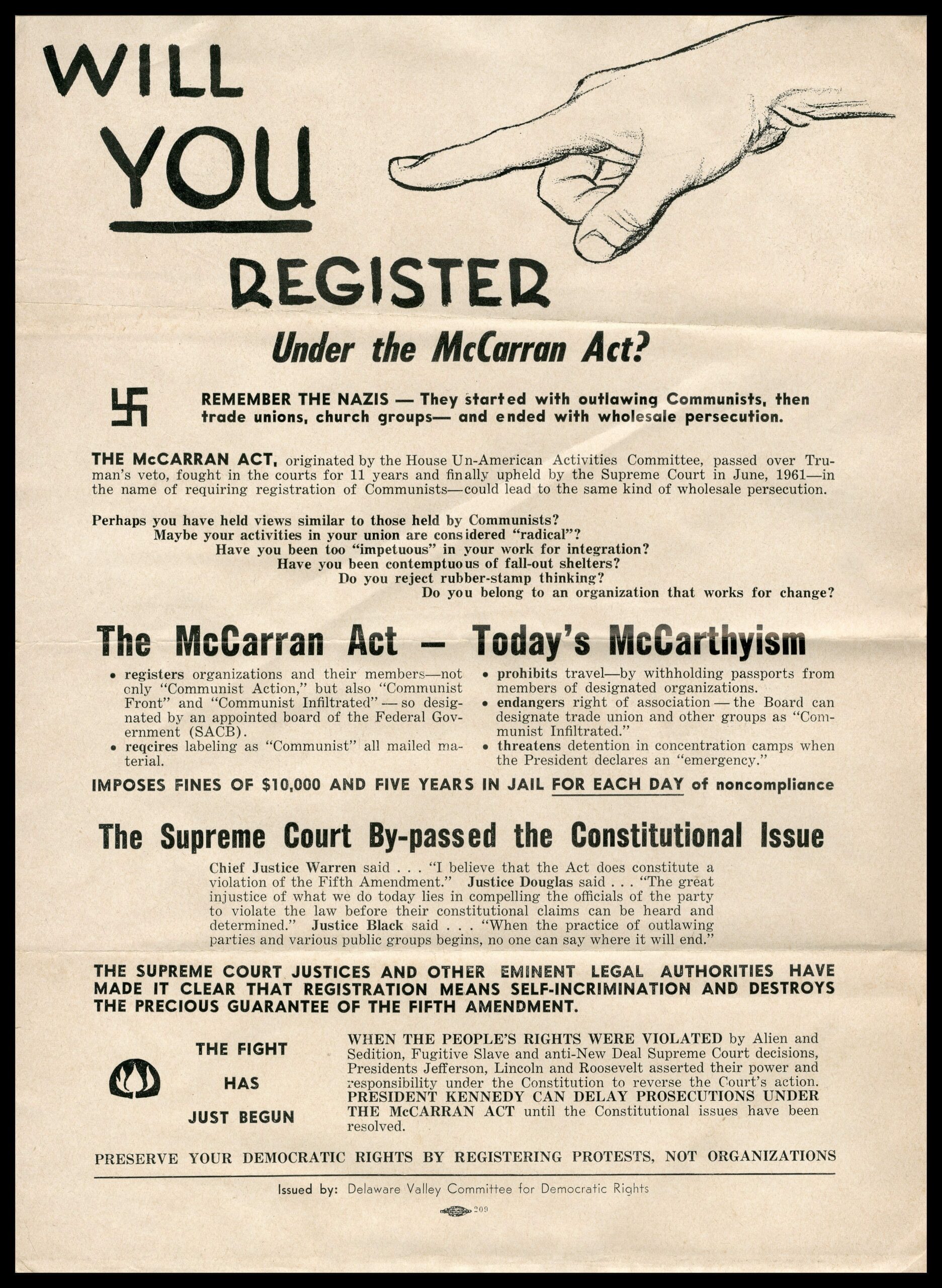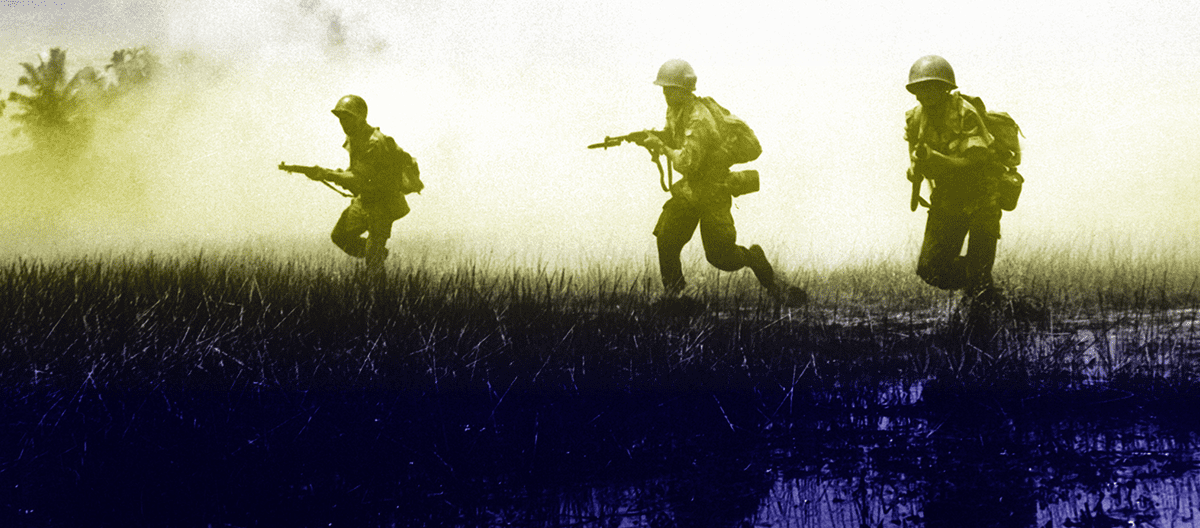
No related resources
Introduction
The House Committee on Un-American Activities (commonly called the House Un-American Activities Committee or HUAC) had its origins in a special committee organized in the mid-1930s to investigate fascist activity in the United States. By the late 1930s, the committee had also begun investigating domestic communism, looking for links between members of the Communist Party of the United States of America (CPUSA) and New Deal agencies such as the Federal Theater Project. The Cold War gave the committee renewed purpose, and it became a permanent committee in 1945. HUAC’s 1947 investigation of communist influence in Hollywood attracted national attention and controversy. Ten screenwriters refused to answer questions; all ten were charged with contempt. (Nine were secret party members, but membership in the CPUSA was not a crime.)
Subsequent HUAC hearings investigated Soviet espionage, communist ideas and practices, and alleged communist influence in student organizations, the media, and, as seen in the following document, labor unions. By 1953, U.S. labor unions had taken many steps to prove they were anti-communist; the Congress of Industrial Organizations, for example, expelled numerous unions for communist connections between 1948 and 1950. Concerns about radicalism within the labor unions continued, though critics charged HUAC with masking an attack on all organized labor in the name of anti-communism.
Robert E. Treuhaft was one of two attorneys who represented a San Francisco local of a warehouse union. His statement before the HUAC is significant for showing the fear generated by subversive investigations, the already established use in 1953 of “McCarthyism” (See McCarthy and Smith) as a polemical device, and the partisan divide on the issue of how to respond to Cold War security concerns.
Source: U.S. Congress, House, Committee on Un-American Activities, Investigation of Communist Activities in the San Francisco Area – Part 3, 83rd Congress, 1st sess., December 3 1953, 3329-41. Available at https://goo.gl/nxX6q5
Mr. TREUHAFT: I am obliged to appear before this committee without assistance of counsel, Mr. Tavenner,1 because of the fact that the repressive activities of this committee have made it impossible for me to secure the assistance of attorneys of my choice. This is a serious charge for a lawyer to make. I am compelled, however, to make it because the state of affairs that I have found to exist in this regard is truly shocking.
A month ago I received a subpoena2 calling for my appearance before this committee. My law partner and I have been, for many years, and are now, general counsel for the East Bay Division of Warehouse Union Local 6, ILWU,3 a labor organization which is one of the principal targets under attack by this committee. In fact, I am sure this was well known to the committee’s investigators, and I cannot down the suspicion that my representation of this union had something to do with the fact that my law partner and I are the only East Bay4 lawyers subpoenaed before the committee at these hearings so far as I know.
I readily agreed to represent four East Bay members of this union as their attorney, who likewise were subpoenaed, despite the fact that I, myself, had been subpoenaed as a witness.
Upon receipt of my subpoena I immediately began to make diligent efforts to secure counsel to represent me. I compiled a list of the 7 leading East Bay lawyers whom I would want to represent me because of their known ability in their profession and because all of them had, from time to time, shown themselves to be champions of the right of advocacy. All had a sound understanding of due process of law and of the other constitutional rights and immunities which are daily trampled upon by this committee. . . .
The first lawyer, whom I will call lawyer No. 1, holds high office in the Alameda County Bar Association. When I first approached this lawyer, he told me that he could see no reason why he could not represent me. The next day, however, he informed me that he felt that he could not do so because of the controversial nature and the publicity attendant upon hearings before this committee and because of his position in the county bar association.
The second lawyer I consulted out of this list, lawyer No. 2, is a former judge who has an active practice on both sides of the bay. I discussed with him the position which I intended to take before this committee; that is, to uphold the Constitution and to rely upon the first and fifth amendments to the Constitution as they might apply to every question that this committee might put to me.
This attorney, who is highly placed in the bar, agreed fully with me in principle and stated that it was his opinion that my decision was sound and wise. He told me that he would like to represent me.
After conferring with his associate, however, he called me in again, and he said that he was very sorry that he could not because representing me with the attendant publicity or representing any witness before this committee would involve financial hardship. . . .
The third lawyer I went to see and offered a retainer to represent me before these hearings was an older lawyer, and he was a better financially established lawyer . . . [but] he told me, “Try to find a younger lawyer. The activities before this committee would be too strenuous,” he thought, the publicity would be harmful.
The fourth lawyer I went to is a leading criminal lawyer in the East Bay. We have been on very friendly terms, and he readily agreed to represent me without any hesitation at all . . . [but] 3 days before I was supposed to come here, he called me, and he told me that his partner had just returned from out of town and had learned that he had undertaken to represent me. He said that his partner represented a bank, and that his partner felt that the attendant publicity would be so harmful to them that he insisted that they could not represent a witness before this committee. He told me this with very personal regret. He also expressed the view – his partner did – that any attorney who represented a witness before this committee might find himself in a position where he was persecuted by other governmental agencies . . .
. . . [A]ll of these lawyers that I named had real courage. I went to them because they were courageous. I am not condemning nor criticizing the lawyers. I am condemning this committee for trying its cases in the newspapers and over the radio. I am condemning this committee for depriving me of right of counsel by its slanderous attacks, attacks by inference, which even repel and revolt some of the Democratic members of this committee . . .
Now, the canon of ethics of the American Bar Association, as I think Representative Moulder5 has referred to, states, and this is law for lawyers, that no lawyer shall, for reasons personal to himself, reject any cause because it is unpopular. All of the lawyers that I consulted did reject this cause for reasons personal to themselves, but for reasons created by the hysteria engendered by this committee in the public mind, the fear that anybody who appears before this committee is labeled as a spy or something subversive, and that the taint may rub off onto the lawyer. . . .
. . . This whole situation is McCarthyism. President Truman recently described it as such. He said that it is the use of the big lie and the unfounded accusation against any citizen in the name of Americanism – in quotes – and security – in quotes. It is the use of the power of the demagogue who lives on untruth, and I am reading here, Mr. Jackson,6 because I am quoting, and I don’t want to be inaccurate:
“It is the spread of fear,” President Truman said, “and the destruction of faith at every level of our society. This horrible cancer,” he said, “is eating at the vitals of America, and it can destroy the great edifice of freedom.”7
Mr. Truman went on to say that this situation should serve to alert the people to the terrible danger that our Nation and each citizen faces and urge his fellow countrymen to “be aroused and fight this evil at every level of our national life.”
I am prepared to fight this evil at every level, and I intend to ask the State bar to look into a situation which I think is truly disgraceful, where lawyers with real courage and standing are afraid to come forward and represent clients before this committee. . . .
- 1. Frank S. Tavenner, counsel to HUAC.
- 2. A subpoena is a legal order requiring someone to appear in court or, in this case, before Congress.
- 3. International Longshoremen’s and Warehousemen’s Union.
- 4. Of the San Francisco area.
- 5. Morgan M. Moulder, a Democratic Congressman from Missouri and a member of HUAC.
- 6. Donald L. Jackson, a Republican Congressman from California and a member of HUAC.
- 7. Treuhaft quotes from a speech former president Truman gave in Independence, Missouri, November 17, 1953. The Chicago Tribune printed the speech, November 17, 1953, Part 1, p. 5. The text is available online at https://goo.gl/DXadFk.

Conversation-based seminars for collegial PD, one-day and multi-day seminars, graduate credit seminars (MA degree), online and in-person.

